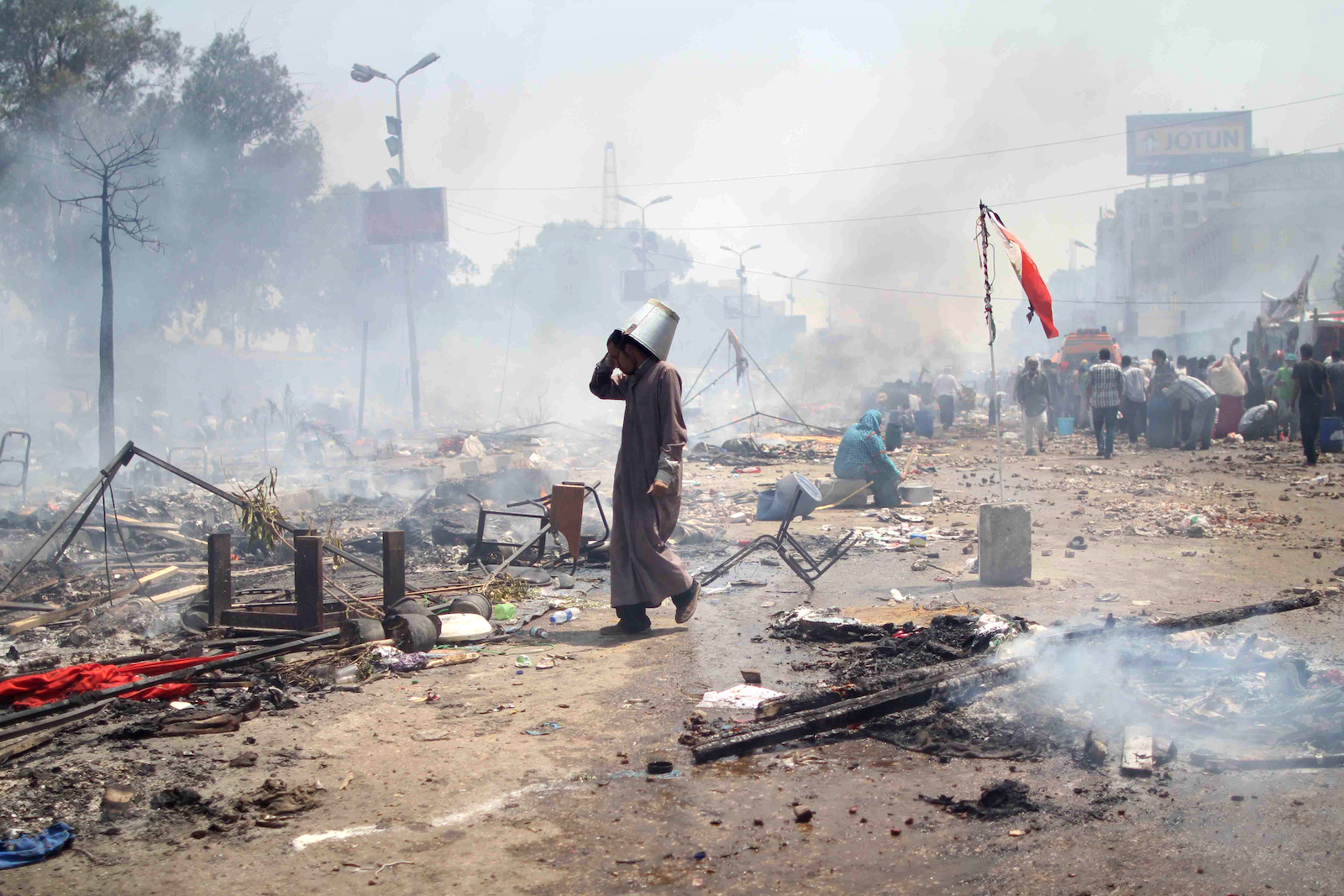
Demise of the Arab Spring
Anyone watching events unfold this week in Egypt should be asking themselves whether there is any daylight left in what is now obliquely referred to as the Arab Spring. The truth is that the Spring has brought terrible carnage in every country that it has touched, and it is questionable whether the ‘benefits’ of the political change it has inspired have been worth the cost — in terms of suffering, a decline in living standards, a rise in crime, number of deaths, and general uncertainty and malaise among the populations of the countries impacted by it. If there was any question about whether the experiment that is the Spring can be judged a success or not, there is no longer a question.
The hopes, dreams, and ambitions that inspired the Spring have fortunately not died, nor has the desire for a simple better life for the inhabitants of the Middle East and North Africa, free of tyranny. But the notion that political change can occur in a predictable fashion, that ‘democracy’ can inevitably prevail and function well simply because it is the will of ‘the people,’ or that life will necessarily be better under a democratically elected government than it was under a dictatorship, is surely gone. Undoubtedly, many people in Egypt are now reminiscing about how comparatively safe and predictable life was under Mubarak. The same is undoubtedly true in Libya, Tunisia, and Yemen.
Transitions to democracy are inherently messy. Did anyone really believe that the Spring was going to result in cookie-cutter democracies all neatly created in an American mold? Democracy brought the world Chavez in Venezuela, Putin in Russia, Hamas in Palestine, and yes, Morsi in Egypt. The road was bound to be rocky throughout the region. Regrettably, there is not a single national success story to be told as a result of all the hard-fought protests, elections, and battles that have been fought to date in the region. Apart from all the bloodshed and suffering that has been unleashed since 2011, an important casualty has been the belief that life can and will be better than it was for the average person in the street.
Another important casualty has been American credibility and effectiveness in the Middle East. Apart from Israel and Jordan, with which governments in the region does the U.S. have better relations with today than before the start of the Spring? Not Egypt, not Iraq, not Iran, not Libya, not Qatar, not Tunisia, not Turkey, not Saudi Arabia, and not Syria. U.S. relations with all these countries have in fact deteriorated, and continue to do so, with every month that now passes. Who has benefitted instead? China and Russia. Russia has ramped up its arms sales and extended its hand even further to Iran and Syria (among others) while China has masterfully sat back, let events unfold, and swooped in when the time was right to fill the void America has left behind.
The implications of all this are unsavory, but not difficult to comprehend. The Arab Spring has proven to be a net negative for those countries choosing to experiment with democracy, for the people and economies of the impacted countries, and for American moral authority and diplomatic influence in the Middle East and North Africa. For all intents and purposes, the Arab Spring is dead. The Arab Winter has officially arrived. Anyone who believes they know what comes next doesn’t know what they’re talking about, but it isn’t going to be good. Based on what we now know, would the region and the average person have been better off without the Spring? Regrettably, the answer is ‘yes.’
